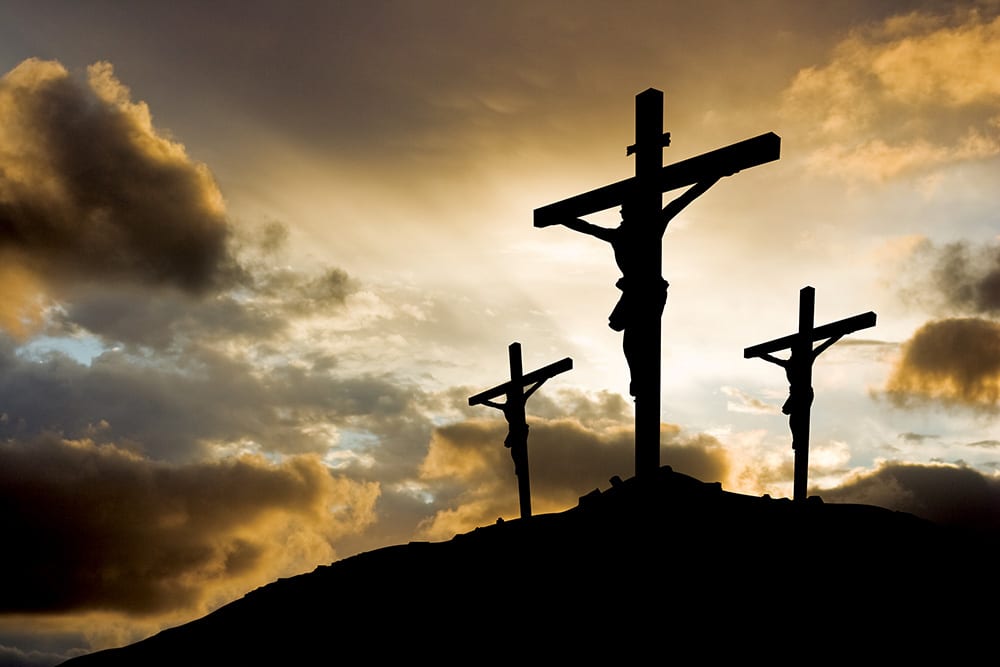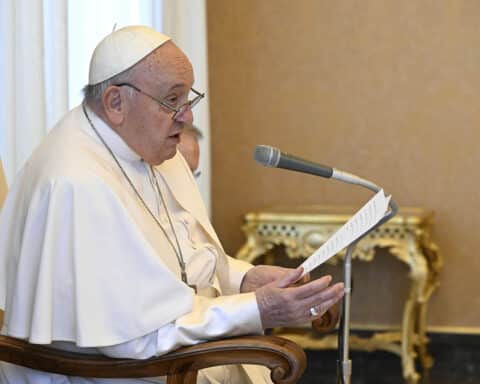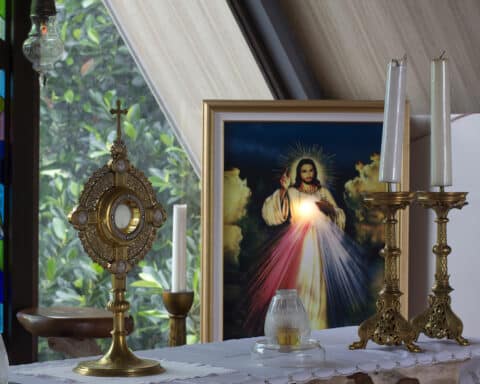
— Paul Torti Jr., West Warwick, Rhode Island
Answer: As to your first question, Jesus did not simply restore us to an earthly paradise. He “upped” the offer to a heavenly paradise. Hence, the fruits of the resurrection do not merely restore us, they elevate us.
But this gift is offered to humanity, not simply applied. The Lord does not save us in a way that cancels our freedom or need to accept his offer. Further, he does not cancel our decision to eat from the tree of the knowledge of good and evil. God had warned them that doing so would introduce suffering and death into their lives. Knowing this, Adam and Eve still chose to distrust and disobey God. All of us have shared in and have ratified this sin (cf. Rom 5:12). Hence, God does not overrule our choice but works with it. In effect he says, “Since you have chosen the path of suffering and death, I will meet you there, at the cross, and make suffering and death the way back to me. But this way leads not to an earthly place, but a heavenly one.”
And so, the key point is that God does not do harm to our freedom by canceling our choice but by working with it. This helps explain why we are not ushered immediately back to Eden. It also gives meaning to suffering and death since these produce glory for us (cf. 2 Cor 4:17) and are the way back to the Father.
This largely addresses your second question as well. After Jesus’ saving act, we are not simply consigned to “continue in this earthly existence of suffering, death and sorrow.” Rather these realities are now transformed as portals unto glory if they are endured with faith. Jesus made his way to the Father through his passion, death and resurrection, and he said to us that we must take up our cross and follow him.
State religions
Question: Why did most secular rulers in the past involve themselves in religious doctrines and require religious observance of their subjects? For example, Roman emperors insisted on worship of the gods. European nations had state religions and so forth. The Church, too, seems only recently to have discovered religious liberty.
— Sunder Jackson, Memphis, Tennessee
Answer: We live in a time where concepts such as diversity and liberty tend to be favored. Religion, in particular, is thought to be personal and belief cannot be compelled. While it is certainly true that belief cannot be compelled and that religious liberty is essential to human rights, this thinking is relatively new and contains premises that must be examined.
The first premise is that belief is largely irrelevant to one’s participation in a nation or a culture. Hence it doesn’t matter what a person believes so long as he pays his taxes and doesn’t beat his wife; being nice and well behaved is all that matters. But this trivializes faith and the role it plays in forming basic character and setting forth moral and cultural norms to which a person adheres. Faith and religious tradition put forth very deep roots in the human person. Even secular people who claim no faith are deeply influenced by their “belief” that there is no God or that organized religion is harmful to human flourishing.
The second premise is a kind of religious indifferentism wherein all religious truths, even contradictory truths, are of equal value and beyond scrutiny. Jesus’ assertion that no one comes to the Father except through him is deemed offensive, even by many Catholics.
Rulers of old were a bit more sober about allowing religious plurality because they sensed that proper faith was necessary for good citizens and national unity. In our times there is the hopeful desire that unity is still possible even in the face of great religious diversity and liberty. Finding a balance in these views is an important work of our time.
Msgr. Charles Pope is the pastor of Holy Comforter-St. Cyprian in Washington, D.C., and writes for the Archdiocese of Washington, D.C. at blog.adw.org. Send questions to msgrpope@osv.com.





